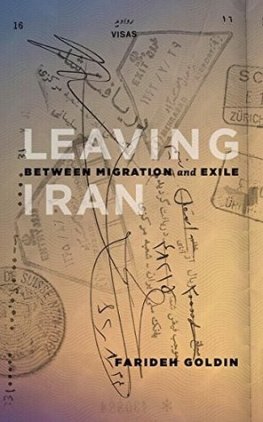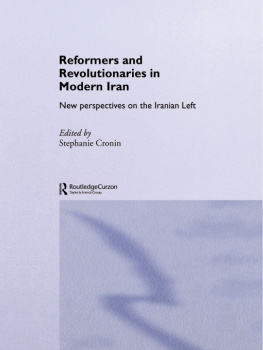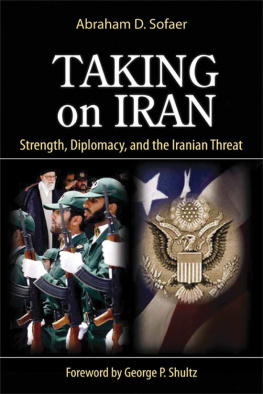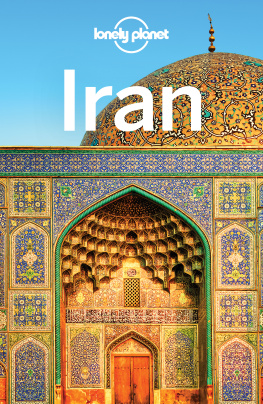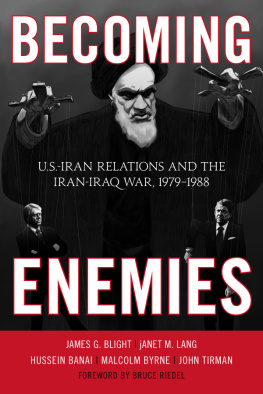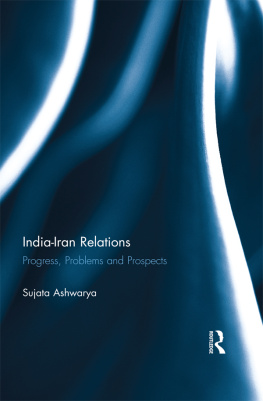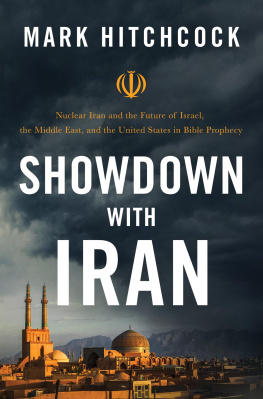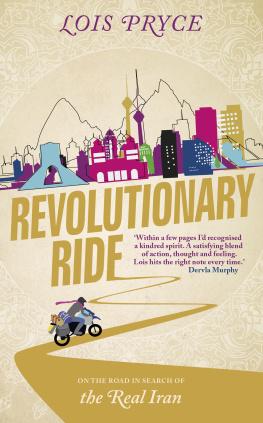LEAVING IRAN
OUR LIVES: DIARY, MEMOIR, AND LETTERS
Social history contests the construction of the past as the story of elites a grand narrative dedicated to the actions of those in power. Our Lives seeks instead to make available voices from the past that might otherwise remain unheard. By foregrounding the experience of ordinary individuals, the series aims to demonstrate that history is ultimately the story of our lives, lives constituted in part by our response to the issues and events of the era into which we are born. Many of the voices in the series thus speak in the context of political and social events of the sort about which historians have traditionally written. What they have to say fills in the details, creating a richly varied portrait that celebrates the concrete, allowing broader historical settings to emerge between the lines. The series invites materials that are engagingly written and that contribute in some way to our understanding of the relationship between the individual and the collective.
SERIES TITLES
A Very Capable Life: The Autobiography of Zarah Petri
John Leigh Walters Letters from the Lost: A Memoir of Discovery
Helen Waldstein Wilkes
A Woman of Valour: The Biography of Marie-Louise Bouchard Labelle
Claire Trpanier Man Proposes, God Disposes: Recollections of a French Pioneer
Pierre Maturi, translated by Vivien Bosley Xwelqwiya: The Life of a St:l Matriarch
Rena Point Bolton and Richard Daly Mission Life in Cree-Ojibwe Country: Memories of a Mother and Son
Elizabeth Bingham Young and E. Ryerson Young, edited and with introductions by Jennifer S.H. Brown Rocks in the Water, Rocks in the Sun
Vilmond Joegodson Dralcin and Paul Jackson The Teacher and the Superintendent: Native Schooling in the Alaskan Interior, 19041918
Compiled and annotated by George E. Boulter II and Barbara Grigor-Taylor Leaving Iran: Between Migration and Exile
Farideh Goldin
LEAVING IRAN
BETWEEN MIGRATION and EXILE
FARIDEH GOLDIN
Copyright 2015 Farideh Goldin
Published by AU Press, Athabasca University
1200, 10011 109 Street, Edmonton, AB T 5 J 3 S 8
doi: 10.15215/aupress/9781771991377.01
ISBN 978-1-771991377 (pbk.) 978-1-77199-138-4 (pdf) 978-1-77199137-1 (epub) Cover and interior design by Natalie Olsen, kisscutdesign.com
Printed and bound in Canada by Friesens
Library and Archives Canada Cataloguing in Publication Goldin, Farideh, 1953, author
Leaving Iran : between migration and exile / Farideh Goldin.
1. Goldin, Farideh, 1953. 2. Goldin, Farideh, 1953 Family. 3. Jews, Iranian United States Biography. 4. Iranian American women Biography. 5. Iranians United States Biography. 6. Refugees United States Biography. I. Title. II. Series: Our lives (Edmonton, Alta.) DS 135.I653 G 654 2015 305.89155073092 C 2015-906546-1
C 2015-906547- X
Assistance provided by the Government of Alberta, Alberta Media Fund.

Please contact AU Press, Athabasca University at for permissions and copyright information.
For Norman , who always believed in me . For Lena, Yael, and Rachel
CONTENTS
PREFATORY NOTE and ACKNOWLEDGMENTS
This book is a work of creative non-fiction. In writing it, I have drawn from the memoir of my father, Esghel Dayanim. Portions of his memoir have been translated from Persian, shaped, and integrated into this narrative.I would like to thank my family, friends, mentors, and editors who have guided me with their wisdom and encouraging words as I wrote this book: Alisa Dayanim, Farzad Dayanim, Freydoun Dayanim, Neli Dayanim, Rouhi Dayanim, Anita Clair Fellman, Nahid Gerstein, Megan Hall, Pamela Holway, Connor Houlihan, Carol Laibstain, Manijeh Mannani, Lesla Newman, Princess Perry, Carolyn Rhodes, Annabel Sacks, Hal Sacks, Joyce Winslet, and Karyn Wisselink.
PREFACE
December 23, 2006
Norfolk, Virginia
The distant, muffled sounds of bumping coal containers at Lamberts Point by the Elizabeth River, the freight trains rolling on their tracks on Granby Street, conjure memories of a happy childhood for my husband Norman, fun times with his father, Milton. I imagine Norman at age twelve in his fathers light-green Dodge Dart waiting at a train crossing, its bells ringing.
Son, what do the initials NS stand for?
Putting his head outside the car window to feel the wind off the cars, screaming, Wooo... woo-wooooo, Norman plays along: Norfolk-Southern. The longer the string of initials, the more fun the game.
I, too, have learned to enjoy these familiar reverberations during the twenty-some years we have lived close to downtown Norfolk. They dont take me back in time to my hometown of Shiraz, a valley in southern Iran, where there were no rivers or railroad tracks, no coal mines or coal dust. Some nights, when these muted whooshing, clanging, thumping noises sing a lullaby to Norman, I keep awake, vigilant. In my minds eye I see the dark stains on the windowsills and imagine the invisible coal particles coating our lungs black.
A foghorn wakes me up at 4:00 a.m. just before the phone rings, or maybe I wake up from the phone call and then hear the ship announce itself. Such early phone calls often beckon Norman, a physician, to the emergency room, but he is not on call.
Maybe it is my father, who has the habit of calling in the early hours. He ignored the nine-hour time difference when he lived in Iran and Norman and I were in Stamford, Connecticut, and later the seven-hour time difference when he sought refuge in Israel and Norman and I had moved to New Orleans but Baba has not called in a very long time.
I grab the phone.
The flat voice of Niloufar, my Israeli sister, buzzes through the receiver from across the Atlantic. She rarely makes these expensive phone calls to the United States.
Allo, Farideh. Baba is in the hospital. Maybe one of you can come to Israel. She pauses. Then in a subdued voice she adds, I cant manage it all by myself anymore.

MY SISTER IS a child of the Iranian Revolution; she was a refugee in Israel at age four. My family escaped Iran on one of the last El Al planes that evacuated Iranian Jews from Mehrabad airport in Tehran to Ben Gurion airport in Tel Aviv on February 4, 1979. Niloufar is my only sibling still living in Israel with our parents.
I left Iran for the United States on July 4, 1975, four years prior to the Islamic Revolution. My mother, six months pregnant with Niloufar, said goodbye to me with the longing eyes of an entrapped woman, having never had the opportunity to escape a fate planned for her by others. Maman was given away in marriage at age thirteen to a man neither she nor her parents knew and sent on a bus over the mountains to my fathers hometown, Shiraz, more than a days drive from her home in Hamedan in northwestern Iran.
I am the oldest of five siblings; Niloufar, the youngest, is twenty-two years my junior. I was finishing my senior year at Old Dominion University in 1975 and had already met Norman, my future husband, on a blind date, when Niloufar was born on September 16, 1975. We have never been together longer than a month, yet I am the one she calls.

THE NIGHT BEFORE , Norman and I had had a Shabbat dinner of brisket, latkes, and homemade applesauce with friends who lived just a few blocks away. We had had a few drinks to celebrate the seventh night of Hanukah, the festival of lights that had coincided with the regular festivities of Friday night, Shabbat.
As we walked home late that night, I shivered in the cold December air. I am a desert woman. I hate cold. Norman felt exhilarated. His grandparents came to America to escape pogroms and anti-Semitism in Russia and Poland, places much colder than southern Iran. Normans face has traces of his paternal grandmothers Russian features: defined cheekbones, fair skin, hazel eyes.
Next page
